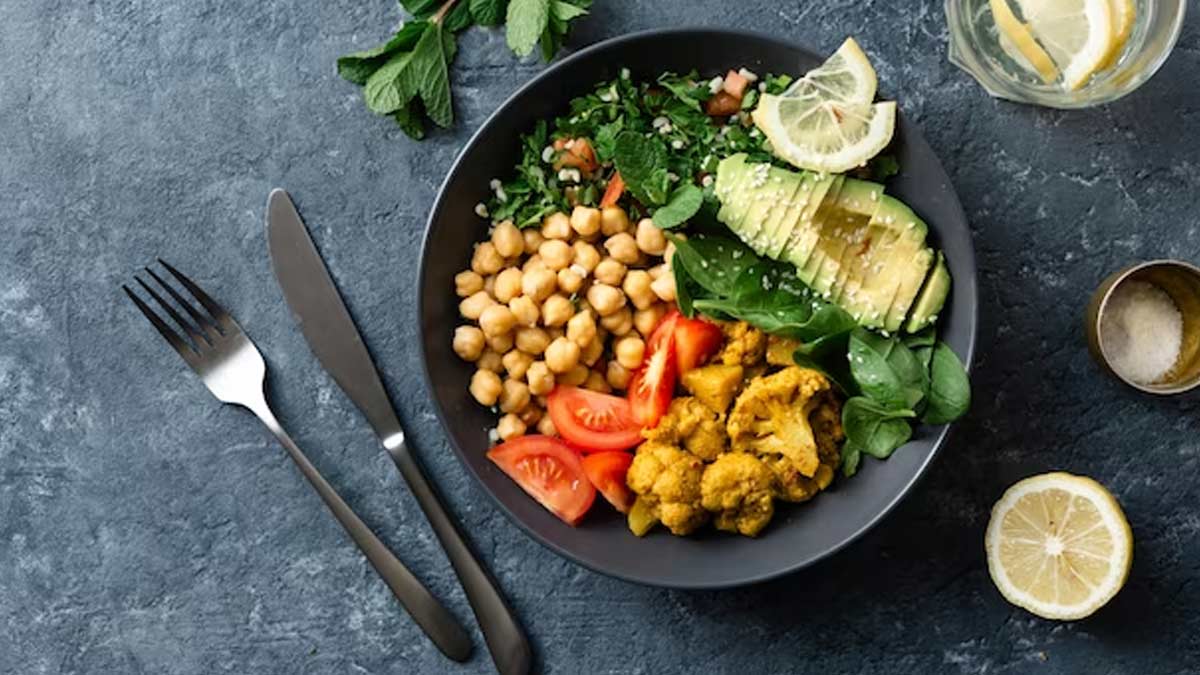
In recent times, veganism has gained much popularity. It is a practice that promotes a plant-based lifestyle and encourages people to abstain from the use of animal products, including meat, dairy, and eggs.
Table of Content:-
Studies have shown that a vegan diet can prove beneficial for overall health and wellness. Research suggests people who follow a plant-based diet, especially one rich in healthy plant foods like fruits, vegetables, and whole grains, have a lower risk of heart disease, death from heart disease, and even overall death compared to those who ate fewer plant-based foods. Moreover, a review published in Critical Reviews in Food Science and Nutrition found that people who follow vegan diets tend to have a lower risk of some cancers.
But more research is needed to back up the benefits of a vegan diet.
On the contrary, a vegan diet may have some downsides. In fact, it could lead to certain nutrient deficiencies. Some of the most common ones include:
Also Read: Nutritional Deficiencies: 10 Signs Your Body Needs Proper Nutrition
Vitamin B12 Deficiency

Unlike vitamin D, your body does not naturally produce vitamin B12. It is only acquired through foods, particularly animal products like fish, meat, poultry, eggs, and dairy products. This is why people who follow a vegan diet may be more at risk of developing vitamin B12 deficiency, which can lead to serious health problems like anaemia and nerve damage. Therefore, to ensure that vegans get enough B12 vitamins, they can have fortified foods like plant milks and cereals or take supplements.
Iron Deficiency
For vegans, another common challenge is getting adequate amounts of iron from a plant-based diet. This is because iron found in plants, mostly non-heme iron, is absorbed less efficiently by the body compared to iron from meat, or heme iron. Therefore, to maximise absorption, vegans can pair iron-rich foods with vitamin C sources like citrus fruits or peppers. Additionally, consulting with a doctor or a healthcare provider may help determine whether or not you require an iron supplement.
Calcium Deficiency

Calcium is another important nutrient that vegans need to be mindful of. Dairy products are often considered the primary source of calcium. However, because vegans cannot consume animal products like milk, yoghurt, and butter, they may be more at risk of calcium deficiency. Alternatively, vegans can include calcium-rich plant-based food options, including leafy greens, beans, almonds, seeds, and fortified foods like plant milks and tofu.
Also Read: Symptoms Of Calcium Deficiency In Women In Early 30s
Protein Deficiency

Protein deficiency is a common concern for vegans, as animal products like meat, fish, eggs, and dairy are the primary sources of the macronutrient. Animal products are complete proteins containing all essential amino acids. However, vegans may have to obtain these essential building blocks by consuming a variety of plant sources throughout the day. These include legumes, nuts, seeds, and whole grains—all containing different amino acid profiles.The good news is, for most people, a well-planned vegan diet with enough calories can easily provide all the necessary protein for good health.
Conclusion
A vegan diet may be good for your health. However, it must be planned thoroughly to fulfil all nutrient requirements. Certain nutrients, like vitamin B12, iron, protein, and calcium, are mostly found in animal products, which vegans cannot consume. Therefore, if they fail to incorporate enough plant-based alternatives into their diet, it may backfire and result in various health challenges. Hence, it is advised to consult a healthcare professional to make proper decisions regarding vegan-friendly alternatives.
Also watch this video
How we keep this article up to date:
We work with experts and keep a close eye on the latest in health and wellness. Whenever there is a new research or helpful information, we update our articles with accurate and useful advice.
Current Version